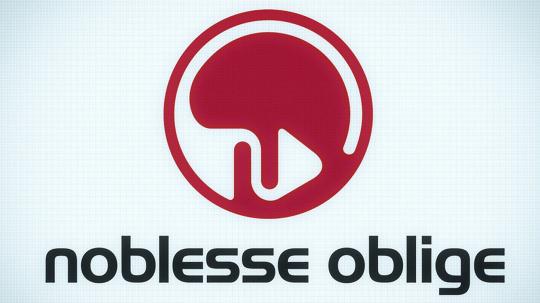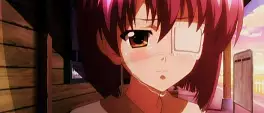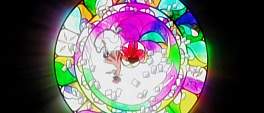Posts with the “symbolism” tag
Why Eden of the East isn't for you - Part 1
It was spring 2009. Code Geass had been over for many months and nothing had filled that void: a show which unified otherwise disparate fans. Production I.G. had long since wrapped up the Ghost in the Shell: Standalone Complex project, following them up with two other Masamune works of varying popularity and polish - Ghost Hound and Real Dive. Kenji Kamiyama meanwhile had completed the respectable Serei no Moribito and was then attached to a new project. Could this be? All the signs pointed to another A-grade production, so was Eden of the East The Next Big Thing?
ef - a tale of memories
Given such an auspicious and confusing opening three episodes, it would have been easy for ef to fall into obscurity and abstraction with deep symbolism and obscured plot; thankfully this is not the case and the series manages to make the absurdly stylistic symbolism part of itself while still a sometimes unique, not wholly original story which ends well at a petite twelve episodes.
In between the astounding opening and changing ending are two stories: one about a high school boy trying to find colour in his world while trying to deal with the affections of two girls, one overt and another covert; the other is about a girl whose memory lasts only a scant thirteen hours before events begin slipping away and her relationship with a boy she meets at an abandoned train station. The plot may sound akin to an atypical dating-sim territory but the storytelling is first rate and deftly draws one into the world and its characters. The supernatural elements that nagged the opening episodes are present but downplayed; the ephemeral figure of a long haired woman who imparts advice to all of the central characters and then vanishes is never explained even slightly, the same with the silent, world weary caretaker of the memory-challenged protagonist. The only time these elements are brought to the fore is in the final moments of the series, hinting more at a desire for a second season rather than anything that would affect the first.
Paprika
It's not a stretch to say that Paprika is the movie that Satoshi Kon has been building up to. Simply attaching his name to a film indicates its content: a trip into the human psyche where perspectives blend and questions about the nature of "self" are posed. This is no different and follows a similar formula to his other films where alternate realities begin to intrude on actual reality, eventually blurring the already indistinct line between the two. Intellectualism and introspection aside, while not a different blueprint to previous movies such as Perfect Blue or Millennium Actress, Paprika is far better paced and perhaps a lot more subtle than previous works, helped no doubt by the blindingly excellent animation from auteur favourite, Madhouse studios.
The questions Paprika asks are not new to anyone who has had a cursory glance at the philosophy and literature surrounding recent Hollywood fare, most notably The Matrix and Eternal Sunshine of a Spotless Mind among others; how it asks them is unique though. The film focuses on a device which allows a psychotherapy professional to both view and interact with a person's dreams, potentially identifying the root cause of their psychological problem and "fixing" it; this sets up a tight cast of characters ranging from an obese genius to a duplicitous therapist to a troubled police officer, all of whom take part in a technicolour journey that eventually culminates in a potentially world-altering event. The aforementioned therapist has the titular alter ego whose flippancy is only matched by her choice of attire and it is through her eyes and dives into dreamscapes that the story unfolds.









